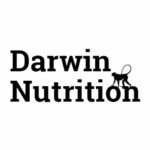At first, we wondered if we would have enough to eat. Or too much to eat. How to prepare all the meals, for the whole family, for an indefinite period?
Then there were millions of exchanges on networks, recipes, tips, live sessions on Instagram to make your own bread, cook with peelings, a true revival of food porn. And official calls to consume French products, favor local industries, to support our country’s agriculture.
But also warnings. Propaganda against the looming pounds of confinement. Injunctions to keep fit—especially for women, and even more so than usual—to make meals a sacred event of the day, to stay the course. Taking the time to cook, not “giving in” at the slightest frustration, yet indulging sometimes to feel good…
If food has always been a cultural subject for the French (don’t we say that we always talk about food or the next meal even while eating?), confinement has exacerbated passions. And also inequalities, social, and between men and women.
That is why Darwin Nutrition commissioned a large survey from IFOP, during which 3,045 French people were questioned about their eating habits starting March 17th. To understand what was happening on our plates, our consumption modes, our relationship with food, and how we foresee the future.
Confinement makes you gain a little weight (and it doesn’t matter)
Let’s get the first fact out of the way: no, you are not alone, most of us have gained a little weight (57% of respondents). 2.5 kg on average since the start of confinement, with men slightly more than women.
The lack of physical activity, boredom, anxiety generated by confinement, and the resulting snacking are no strangers to this. But hasn’t the fear of gaining weight, of doing wrong, of “failing” the confinement also led to weight gain?

It is observed that the unemployed, less educated or from poorer categories have been more affected by this weight gain. Public Health France is currently conducting a survey, which shows that stress and depression during quarantine affect these same people much more.
Towards healthier eating?
A direct consequence of this widespread weight gain: 56% of French people want to eat healthier and more balanced after confinement, without necessarily following a strict diet. In this, we have understood that physical and psychological well-being comes not so much from restrictive diets but from informed choices, quality, and diversity of one’s diet.
Women are the majority wanting to eat more balanced after confinement (60% versus 51% of men), but they are also more likely to want a strict diet (21% versus 15% of men). It was already known that they are the biggest consumers of fat burner supplements.

What about the quality of meals during confinement? It turns out that 42% of French people are spending more time than before on meal preparation, and 29% are making more “homemade” foods, like bread and yogurt. Furthermore, 21% of French people report using home deliveries less.
Consuming local products is an increasingly widespread issue. 35% of respondents declare that they have attached more importance to the local nature of their food since March 17th. La Ruche Qui dit Oui! has seen its number of orders triple across France, and 30,000 new customers have used this direct purchase network from producers since the start of confinement.
It’s not only about eating healthier but also about supporting local producers.

Organic food is definitely no longer an emerging trend but a “winner of the crisis” sector, which should become widespread, for our own good and that of the planet. Thus, a survey by the Boston Consulting Group suggests that Europeans plan to consume more fresh and organic products in the coming months (to the detriment of other sectors of expenditure, such as fashion or luxury).
It’s not new, but organic food is still the preserve of the wealthier categories, with 24% consuming more since March 17, compared to 16% across all categories.
There is no surge in the delivery of fruits and vegetables or ready meals to homes, although there is a strong growth in home meal kit and basket services.
Our buying guides created by experts:
– Marine Collagen
– Spirulina
– Cat Kibble
– Hair Supplements
– Omega-3
“The After”: A Growing Awareness of the Environmental Impact of Food, Especially Among the Young
Subjects such as short supply chains, organic farming, or sustainable production were already important (at least symbolically) before the lockdown, and they will become even more so in the future. Crises like the one we are experiencing have dramatic effects, but they can also drive incredible changes.
Has the pandemic made the French more responsible on environmental issues? We see it with air travel, consumption, and mass tourism, where reductions are seen as beneficial (for the planet).

And our eating practices are no exception, with 29% of the French stating they will give more importance to the environmental impact of their diet after May 11.
For the record, food alone accounts for a quarter of the carbon footprint of the French, with the most polluting stage being its production.
And “the world after”? Generation Z and Millennials, while doubting the institutions’ ability to progress on environmental issues, are convinced that the crisis will have a positive impact on culture and society, as confirmed by a study from Vice Media Group.
The young, particularly students, declare that they will give more importance to balancing their diet post-lockdown (42% of students compared to 33% across all categories), and to its impact on the environment (37% of students compared to 29% across all categories).
Gender Inequalities Exacerbated by Lockdown
One might logically have hoped that with equal time spent in the domestic sphere, men and women would have moved towards equality in the distribution of tasks. This is not the case, and it is one of the main findings of this survey.
During the lockdown, food within heterosexual couples is a source of tension and an increase in inequalities between men and women. 42% of respondents reveal that the distribution of meal preparation was a subject of tension within the couple, and only 21% of men claim to participate more than before in meal preparation.

Thus, it is the women, 60% of whom primarily take on the responsibility of meals within the couple… Compared to 58% before the lockdown (2017 BVA survey)! Inequalities have thus increased, and the imbalance remains striking in all social categories, especially among retirees and the modest and poor categories.
Students and couples of less than a year are the closest to parity, though without reaching it.
The situation is even more stifling than in “normal” times, as the number of meals to prepare has increased (sometimes also the number of people per household), as well as the time spent on children.
Unfortunately, the topic of cooking remains highly gendered. And the lockdown, far from having eased the mental load (the total load) of women in meal preparation, has intensified it.
Methodology: Ifop study for Darwin Nutrition conducted online from April 24 to 27, 2020, with a sample of 3,045 French people aged 18 and over living in metropolitan France.
Image: Pexels / Cottonbro



